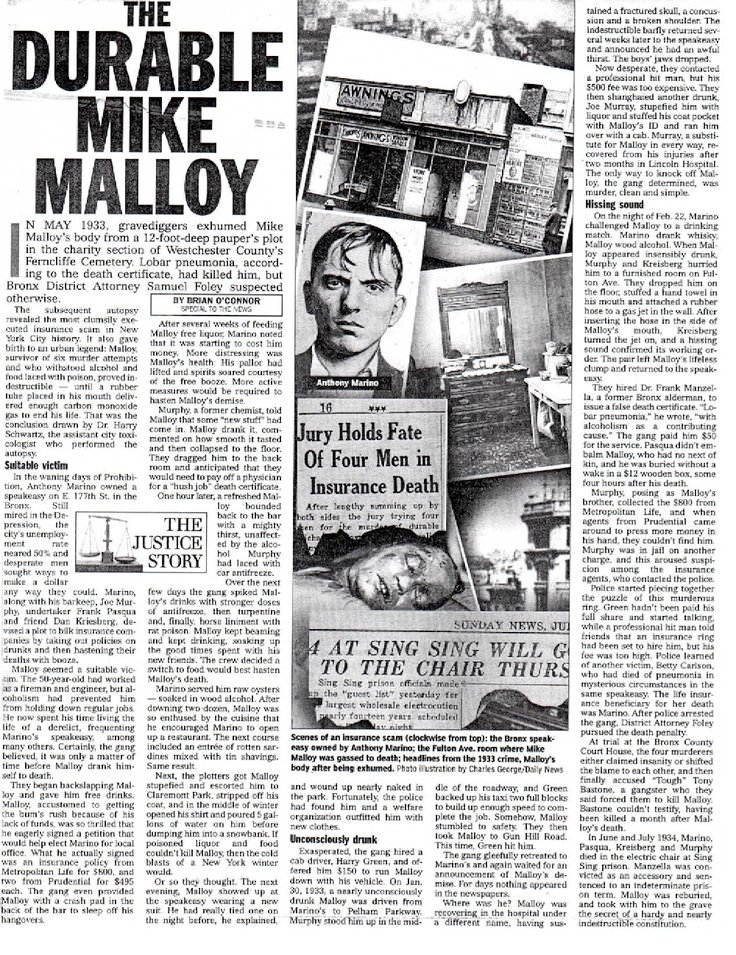
Have you ever heard of William Walker from Nashville, Tennessee?
The dude who (successfully) declared himself President of a foreign country not once...but twice?
Well if not, buckle in and grab yourself a bag of popcorn, 'cause you're in for one hell of a story:
👇👇👇
The dude who (successfully) declared himself President of a foreign country not once...but twice?
Well if not, buckle in and grab yourself a bag of popcorn, 'cause you're in for one hell of a story:
👇👇👇

Before we begin, it's important to define two ideologies that very much shaped American sentiment and policy in the 1800s:
1) Manifest Destiny
2) Filibustering
1) Manifest Destiny
2) Filibustering
Let's start with Manifest Destiny:
In the 1800s, many Americans believed they were destined by a "Divine Providence" to expand into other territories, be it in the West or elsewhere.
To spread American exceptionalism?
To displace Native populations?
It was their..."destiny."
In the 1800s, many Americans believed they were destined by a "Divine Providence" to expand into other territories, be it in the West or elsewhere.
To spread American exceptionalism?
To displace Native populations?
It was their..."destiny."

Next: Filibustering.
When we think of filibustering today, we think of politicians rambling endlessly and aimlessly in order to delay a parliamentary or congressional vote.
But back in the 1800s...in America?
Filibustering had a COMPLETELY different meaning.
When we think of filibustering today, we think of politicians rambling endlessly and aimlessly in order to delay a parliamentary or congressional vote.
But back in the 1800s...in America?
Filibustering had a COMPLETELY different meaning.

A filibuster was literally a conquistador-like expedition amongst private, non-military Americans into other sovereign areas in hopes of taking them over.
That is, to filibuster was to rally a bunch of your friends, round up some ammo, and go declare war on Nicaragua.
Imagine!
That is, to filibuster was to rally a bunch of your friends, round up some ammo, and go declare war on Nicaragua.
Imagine!
Now that we've got some context, we can move on to the star of our story:
William Walker.
Born in 1824, Walker graduated the University of Nashville at the age of 14.
By time he was 25, he had a medical degree, a law degree, and owned a newspaper.
Paging Forbes 30 Under 30!
William Walker.
Born in 1824, Walker graduated the University of Nashville at the age of 14.
By time he was 25, he had a medical degree, a law degree, and owned a newspaper.
Paging Forbes 30 Under 30!

Then, in 1852, at the ripe age of 29, Walker and his pals applied for a mining settlement in the silver-rich Mexican state of Sonora, just south of the Rio Grande.
But when Walker's application was denied, that meant one thing and one thing only:
It was time to invade Sonora.
But when Walker's application was denied, that meant one thing and one thing only:
It was time to invade Sonora.

Before invading a foreign country, however, this doctor-lawyer-newspaperman had to find himself an army.
And find an army he did.
Walker recruited 45 other adventure-seekers and by November of 1853 he captured La Paz: the capital city of the Mexican state of Baja California.
And find an army he did.
Walker recruited 45 other adventure-seekers and by November of 1853 he captured La Paz: the capital city of the Mexican state of Baja California.

Walker was riding high.
Not only did he re-name his newly captured region to "Lower California", but he also declared himself PRESIDENT of the region.
Lower California was now “free, sovereign and independent"...
Independent from America...and independent from Mexico.
Not only did he re-name his newly captured region to "Lower California", but he also declared himself PRESIDENT of the region.
Lower California was now “free, sovereign and independent"...
Independent from America...and independent from Mexico.

Naturally, this disgraced both the American AND Mexican governments.
For the Americans, it was as if they had no control of their people...or respect for other countries' borders.
For the Mexicans, it was as if they had no sovereignty...or ability to self-defend.
For the Americans, it was as if they had no control of their people...or respect for other countries' borders.
For the Mexicans, it was as if they had no sovereignty...or ability to self-defend.
But for 300 or so gung-ho, bored Americans pent up throughout the southern US?
Walker wasn't an embarrassment, no.
He was an INSPIRATION.
And so they all moved to the state that was "Lower California" and joined him.
By 1854, Walker had a 300-man army in Lower California.
Walker wasn't an embarrassment, no.
He was an INSPIRATION.
And so they all moved to the state that was "Lower California" and joined him.
By 1854, Walker had a 300-man army in Lower California.
So?
President Walker was feeling good.
Real good.
The doctor-turned-lawyer-turned-newspaperman-turned-PRESIDENT saw himself as a Sun Tzu.
“Walker thought he was a general, and a mastermind,” one historian says.
A general, I suppose.
But a mastermind?
Surely not.
President Walker was feeling good.
Real good.
The doctor-turned-lawyer-turned-newspaperman-turned-PRESIDENT saw himself as a Sun Tzu.
“Walker thought he was a general, and a mastermind,” one historian says.
A general, I suppose.
But a mastermind?
Surely not.

In trying to annex more territory in Sonora (in which he'd declare himself...again...President), Walker disenchanted many of his soldiers, who slowly started to desert him.
Walker's once 300+ men army was dwindling down by the day.
Walker's once 300+ men army was dwindling down by the day.
By May of 1854, Walker's army was down to 35.
He and his men were pushed north and north and north by Lower Californian and Sonoran resistance until they were met at the Mexican - US border by soldiers...
Actual, trained soldiers employed by, you know, the US Military.
He and his men were pushed north and north and north by Lower Californian and Sonoran resistance until they were met at the Mexican - US border by soldiers...
Actual, trained soldiers employed by, you know, the US Military.
From there, Walker was arrested and put on trial for violating the Neutrality Act of 1818 for...well, taking over part of a foreign country and declaring himself president there.
And surely, one would think Walker would be found guilty and imprisoned, right?
Ha.
Think again.
And surely, one would think Walker would be found guilty and imprisoned, right?
Ha.
Think again.

Walker had SO much support from Americans at home who championed his efforts as a filibuster who was manifesting America's destiny, that the jury acquitted him in EIGHT MINUTES.
And once Walker got a taste of the presidency...oh man did he want it again...
Bad.
And once Walker got a taste of the presidency...oh man did he want it again...
Bad.
Walker needed a new target.
Somewhere where there was a fight for power, but not complete and total anarchy...
Somewhere close, but not too close so that the US would intervene...
Somewhere wealthy, but not too wealthy to avoid jealous enemy filibuster invaders...
Somewhere where there was a fight for power, but not complete and total anarchy...
Somewhere close, but not too close so that the US would intervene...
Somewhere wealthy, but not too wealthy to avoid jealous enemy filibuster invaders...
And who ticked all the boxes?
Nicaragua.
Walker called Nicaragua "a country for which nature has done much and man little.”
And with Nicaragua in the midst of a civil war, how perfect of a target it was for Walker and his 57 newly recruited filibusters.
Nicaragua.
Walker called Nicaragua "a country for which nature has done much and man little.”
And with Nicaragua in the midst of a civil war, how perfect of a target it was for Walker and his 57 newly recruited filibusters.

Walker's new 57 filibusters?
He called them "men of strong character, tired of the humdrum of common life."
A historian, on the other hand, called them:
"Vigilante fugitives from San Francisco, wharf rats from New Orleans and villains from half the countries of the world."
He called them "men of strong character, tired of the humdrum of common life."
A historian, on the other hand, called them:
"Vigilante fugitives from San Francisco, wharf rats from New Orleans and villains from half the countries of the world."
Whoever they were, 57 men and Walker sailed south to Nicaragua in May of 1855, where they'd side with the Nicaraguan Democrats against the enemy Legitimists.
Violent, bloody fighting ensued for months until a truce was reached in October of 1855, restoring peace in Nicaragua.
Violent, bloody fighting ensued for months until a truce was reached in October of 1855, restoring peace in Nicaragua.

A truce between the Democrats and Legitimists was great...but Walker's mission was not yet complete.
Walker stayed around in Nicaragua - in a position of military power - until the presidential elections of July 1856.
And can you guess who won?
Walker stayed around in Nicaragua - in a position of military power - until the presidential elections of July 1856.
And can you guess who won?
Yep - that's right.
In July of 1856, William Walker of Nashville, Tennessee became President of Nicaragua.
And during Walker's time in Nicaragua, he managed to (REALLY) piss off some important people and countries.
People and countries like...
In July of 1856, William Walker of Nashville, Tennessee became President of Nicaragua.
And during Walker's time in Nicaragua, he managed to (REALLY) piss off some important people and countries.
People and countries like...

•American businessman Cornelius Vanderbilt..because Walker seized his shipping vessels in Nicaragua
•Costa Rica, El Salvador, Honduras, and Guatemala..because they thought they would succumb to Walker's filibustering next
•The US Government..because again: how embarrassing!
•Costa Rica, El Salvador, Honduras, and Guatemala..because they thought they would succumb to Walker's filibustering next
•The US Government..because again: how embarrassing!
By May of 1857, after a 10-month tenure as Nicaraguan President, Walker was driven out of power and fled to the US.
And even though it sounds too crazy to be true, Walker tried filibustering AGAIN in Honduras in 1860.
But shortly after arriving there, he was killed.
He was 36.
And even though it sounds too crazy to be true, Walker tried filibustering AGAIN in Honduras in 1860.
But shortly after arriving there, he was killed.
He was 36.

And whilst there is just so much to say about and learn from Walker's insane, hard-to-believe, ego-driven fight for the presidencies, thankfully we can say now, over 160 years later:
At least these days...not just ANYONE can become President anymore.
...Right?
At least these days...not just ANYONE can become President anymore.
...Right?

For a compilation of similar history-related stories, check out the collection below:
https://twitter.com/DavidZabinsky/status/1476200313992269831?s=20
With the help of some remarkable entrepreneurs from all around the world, I also help tell stories of founders in emerging and frontier markets.
Check out "Not From Silicon Valley" wherever you get your podcasts:
Spotify: open.spotify.com/show/7DUVRxuNP…
Apple: podcasts.apple.com/us/podcast/not…
Check out "Not From Silicon Valley" wherever you get your podcasts:
Spotify: open.spotify.com/show/7DUVRxuNP…
Apple: podcasts.apple.com/us/podcast/not…
• • •
Missing some Tweet in this thread? You can try to
force a refresh


















